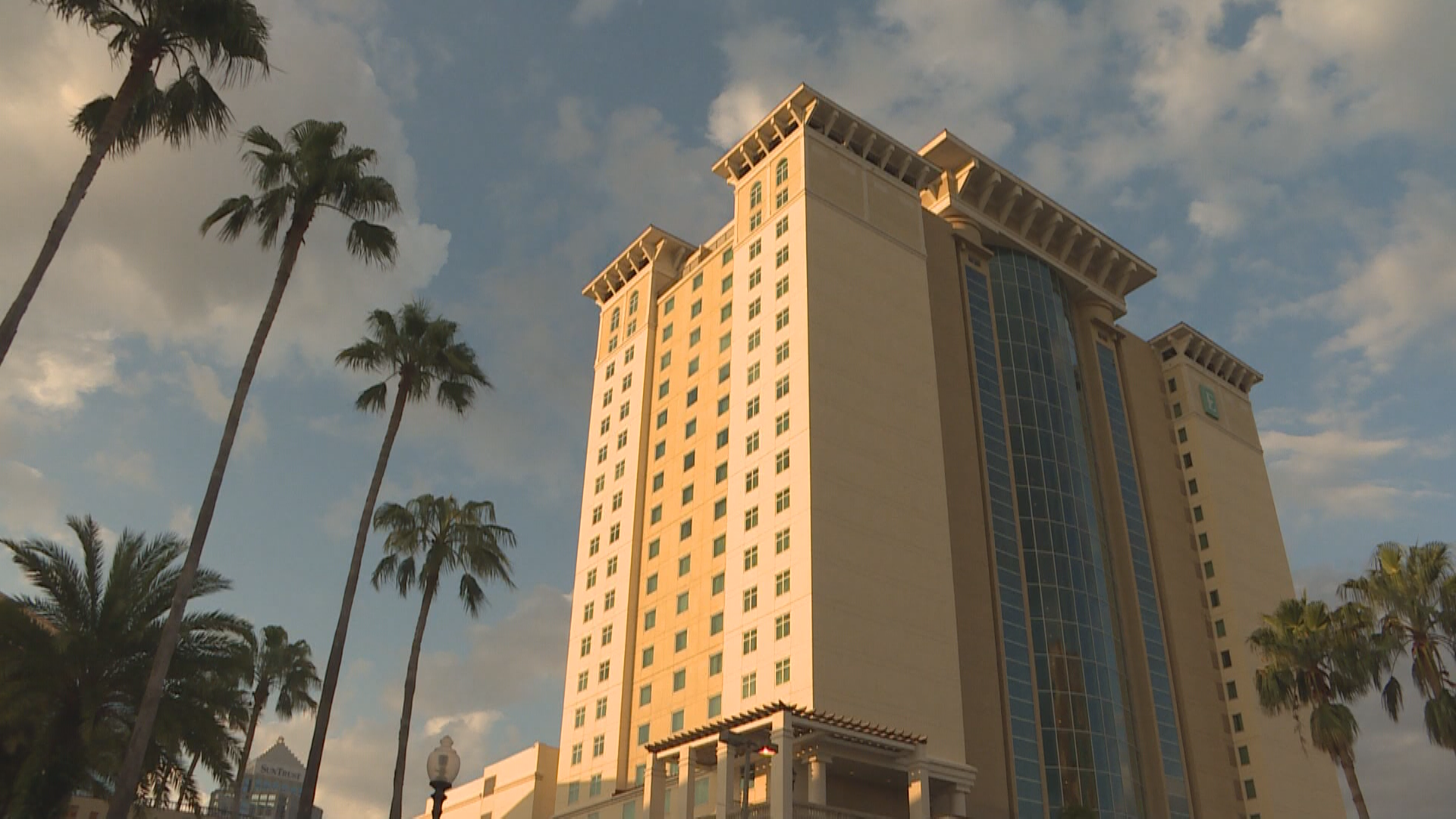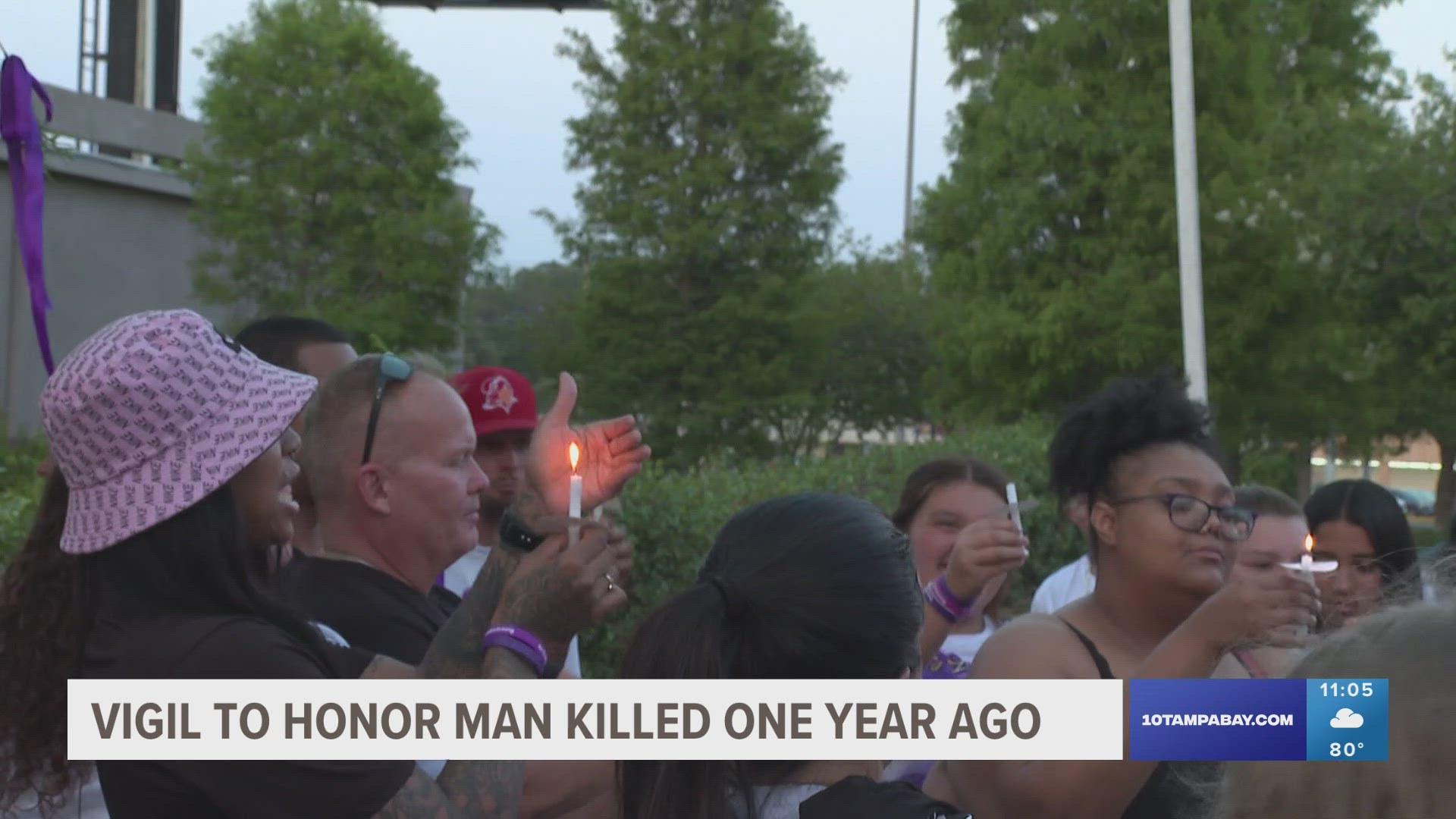TAMPA, Florida - A new fee assessed at check-out on guests at a dozen Downtown and Ybor City hotels is raking in hundreds of thousands of dollars in addition to the county's bed tax.
However, the “special assessment fee” is not transparent when booking a room rate; it is controlled by hotel owners and not a taxpayer-monitored board in-the-sunshine. It also seems to violates the spirit of the Florida law that caps the bed tax local hotels and motels can charge guests.
This summer, 12 hotels around Tampa’s downtown core began charging an additional $1.50 per room per night fee to boost marketing efforts. It’s expected to generate more than $1 million in their first year, with the Hillsborough County Hotel Motel Association (HCHMA) eyeing a future expansion of the fee to the rest of the county.
Except, the purpose of the existing bed tax, currently capped at 5 percent for a county like Hillsborough, is for investing in tourism-drivers and marketing. The new fee is essentially a duplicative fee to the maxed-out 5 percent bed tax.
The Downtown/Historic Ybor City Tourism Marketing District fee, like other hotel taxes, is not typically not disclosed in the hotel's quoted room rate. However, proceeds from the fee go right back to local hotels to spend as they see fit.
When asked why the HCHMA opted for the additional fee, assessed at check-out, rather than using proceeds from room rates to fund its new advertising and marketing initiatives, an industry representative suggested it was necessary to promote the Downtown/Ybor district properly.
"Certainly, what (the 12 hotels) could have done, is just raise rates $1.50 per night per room and spend the money that way, independently," said Bob Morrison, executive director of the HCHMA. "But they said, if we collectively pool our resources, we're going to be stronger and the destination is going to be better."
All hotel guests in Hillsborough County pay a 7 percent sales tax, and a 5 percent county tourist/bed tax. Hillsborough County may soon raise its bed tax another 1 percent, when it achieves "high tourism impact" status, marked by $30 million in bed tax collections in a single year.
Eight other Florida counties collect more bed tax revenue than Hillsborough: Orange, Broward, Osceola, Pinellas, Palm Beach, Lee, Monroe, and Miami-Dade.
"We are far behind our peers across Florida," Morrison said. "So our hotel owners asked the question, 'what can we do to bridge the (marketing) gap?' It's our residents that are the ultimate beneficiary, and unless they stay in a hotel, they don't pay a dime."
Hillsborough could potentially raise its bed tax to 6 percent next year, but instead of putting that money toward new advertising and marketing programs, as many other counties do, Hillsborough County appears to be earmarking potential new bed tax revenues for a new Rays stadium. The bed tax already helps funds three existing stadiums in Hillsborough County: Raymond James Stadium, Amalie Arena and Steinbrenner Field.
So hotels have turned to the special assessment fee to raise what Morrison called necessary marketing funds.
Morrison couldn't yet say exactly how the funds will be spent, and unlike bed tax and sales tax revenues, no board of elected officials will have a vote on specifics. Instead, the funds from the special assessment district will be controlled by a small group of hotel owners and the HCHMA, who will only need to present an annual report to the Tampa city council to keep the fees in-place.
The plan is to use the funds just like county bed tax dollars, which fund ad-buys, marketing initiatives and provide public support for private tourism-drivers such as sporting events and concerts.
But the district, the first of its kind in Florida, could violate the letter of several state statutes.
Although 12 hotels in Downtown/Ybor City have chosen to participate in Tampa's initial marketing district, new hotels that may open within the district would not appear to have to have a choice whether to participate, and potentially no say in how the money collected at their properties was spent.
The money is also technically not a tax, so state law may require properties to pay taxes on the income. However, since hotels are not considering it part of their advertised room rate, they will not pay state or local taxes on the $1 million-plus collected in marketing fees from guests this year.
Despite legal questions and guest frustrations over surprise charges, the Tampa City Council approved the new fees unanimously this spring. Morrison said the program appears to be a success so far, and he hopes to expand it to the Westshore, East Hillsborough/Brandon and USF/New Tampa areas as well.
Find 10Investigates' Noah Pransky on Facebook or follow his updates on Twitter. Send your story tips confidentially to npransky@wtsp.com.


